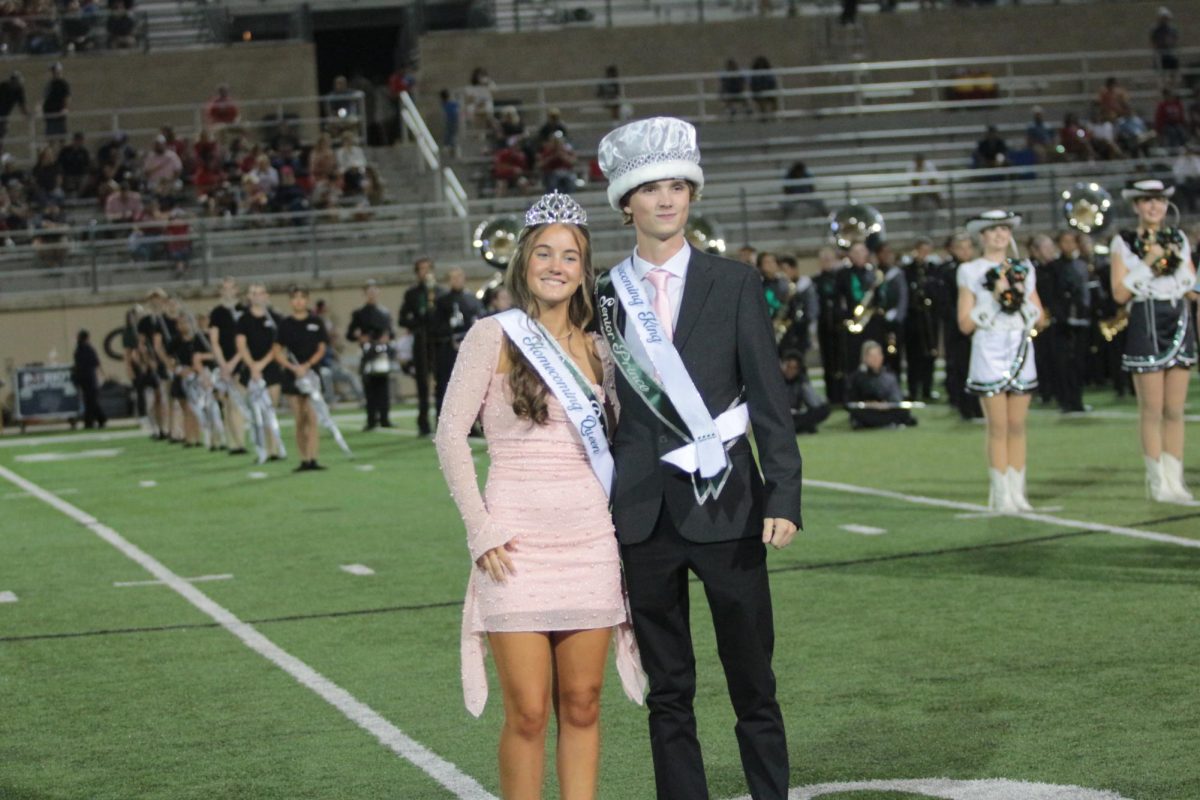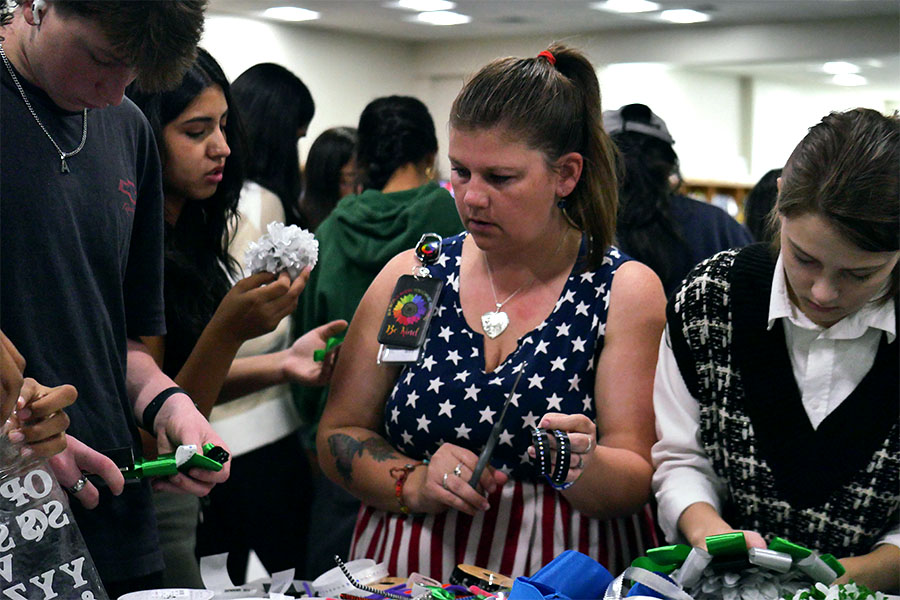In light of the recent mishaps spiraling around the collegiate athletic world, viewers have been forced to make an opinion on the roles of student athletes. Recently, it seems, the athletes we hold to such high standards are the ones that fail us most.
Probably the most overused example is that of Heisman winner, and Texas A&M, QB Johnny Manziel who was accused of selling autographs, a violation of NCAA rules. However, though some people would like to believe that he is the sole offender, many other schools and players have been accused of similar acts. The Oklahoma State football program is under investigation due to claims of cash payments, drugs and misconduct. Last April, Alabama football player D.J. Fluker admitted to being paid during his time with the Crimson Tide on Twitter.
As much as people would like to write these off as merely poor decisions, it forces us to take a look again at what we accredit to student athletes and what they must uphold. Saying that student athletes must be perfect because of the school they represent is a bit over demanding, but the reasoning may be valid. A student athlete is a leader in the school, solely because it is them who receive the most publicity. An athlete represents their school just as much as any other student, but had it not been for the growth of high school sports coverage, they would not have greater responsibilities than that of an average student.
So, yes athletes do have more responsibilities and are to set an example for the school. After all, doesn’t it seem contradictory for an athlete who is praised for their hard work to be cheating in their academic classes? As Lone Star Cup winners, we have proven that we excel in almost every extra-curricular activity. This is no small feat. This achievement has brought a spotlight with it. As athletes who contributed to the winning of the cup, we are echoes of our school.
Many coaches hammer this into the minds of their players by limiting their contact with the press and instilling core values into their programs. For example, Coach Willis requires his approval for football players who are not captains to talk to the media. This prevents any comments said by players to be twisted or morphed to have different meanings.
The expectations, when explained as a laundry list of what not to do, may seem like an insurmountable amount of pressure, but in the end all that is really required of them is to do what is morally right. This lesson of right and wrong, which we have been learning our whole lives, is exceptionally important to athletes, who possibly have the most to lose.







![As her hair blows in the wind, senior Brianna Grandow runs the varsity girls 5K at the cross country district meet last Thursday. Grandow finished fourth in the event and led the varsity girls to regionals with a third place placement as a team. “I’m very excited [to go to regionals],” Grandow said. “I’m excited to race in Corpus Christi, and we get to go to the beach, so that’s really awesome.” Photo by Addison Bruce](https://cphswolfpack.com/wp-content/uploads/2025/10/brianna.jpg)


![Broadcast, yearbook and newspaper combined for 66 Interscholastic League Press Conference awards this year. Yearbook won 43, newspaper won 14 and broadcast took home nine. “I think [the ILPC awards] are a great way to give the kids some acknowledgement for all of their hard work,” newspaper and yearbook adviser Paige Hert said. “They typically spend the year covering everyone else’s big moments, so it’s really cool for them to be celebrated so many times and in so many different ways.”](https://cphswolfpack.com/wp-content/uploads/2025/05/edited-ILPC.jpg)





![Sitting with her friend senior Sohpia Struve at last year’s Austin City Limits Festival, senior Ava Zuniga poses for a picture under a pavilion. They are frequent attendees at ACL, an annual music festival at Zilker Park. “I would recommend seeing a bunch of people,” Zuniga said. “This past year, we camped out for Chappell [Roan] for a really long time. I think the whole point of ACL, [which] is a lot of fun, is that you can go see so many different people, even if you don’t know them. So by camping by one person, it really limits yourself from being able to go see a bunch of people.” Photo courtesy of Ava Zuniga](https://cphswolfpack.com/wp-content/uploads/2025/10/EE9E9484-FE6F-4AA0-B5F5-0C177AB32841-1200x857.jpeg)
![Looking down at his racket, junior Hasun Nguyen hits the green tennis ball. Hasun has played tennis since he was 9 years old, and he is on the varsity team. "I feel like it’s not really appreciated in America as much, but [tennis] is a really competitive and mentally challenging sport,” Nguyen said. “I’m really level-headed and can keep my cool during a match, and that helps me play a bit better under pressure.” Photo by Kyra Cox](https://cphswolfpack.com/wp-content/uploads/2025/09/hasun.jpg)

![Bringing her arm over her head and taking a quick breath, junior Lauren Lucas swims the final laps of the 500 freestyle at the regionals swimming competition on date. Lucas broke the school’s 18-year-old record for the 500 freestyle at regionals and again at state with a time of 4:58.63. “I’d had my eye on that 500 record since my freshman year, so I was really excited to see if I could get it at regionals or districts,” Lucas said. “ State is always a really fun experience and medaling for the first time was really great. It was a very very tight race, [so] I was a bit surprised [that I medaled]. [There were] a lot of fast girls at the meet in general, [and] it was like a dogfight back and forth, back and forth.” Photo by Kaydence Wilkinson](https://cphswolfpack.com/wp-content/uploads/2025/03/Kaydence-2.7-23-edit-2.jpg)
![As the support team sits and poses for a photo in the cafeteria with the counseling team they eagerly wait to start their day. "We [all] seem to be a team, I get up every day and there's days where I don't want to go to work today, but I'm thankful that I have a job and I'm blessed to have what I have," Christopherson said. Photo Courtesy of Julie Weltens.](https://cphswolfpack.com/wp-content/uploads/2025/01/AF9E8470-10D7-4C91-BF28-EC8F86BAB66C-1200x852.jpeg)
![Jumping off the ground, senior linebacker Bennett Patton snatches the ball out of the air for an interception at Thursday’s game against Chaparral. Patton had two interceptions in the 56-14 victory, tying the school record for interceptions in a game. “I was just playing the game,” Patton said. “[I’m] going to go into next week, forget about it and stay humble.” Photo by Harper Chapman](https://cphswolfpack.com/wp-content/uploads/2025/09/bennett-interception.jpg)














